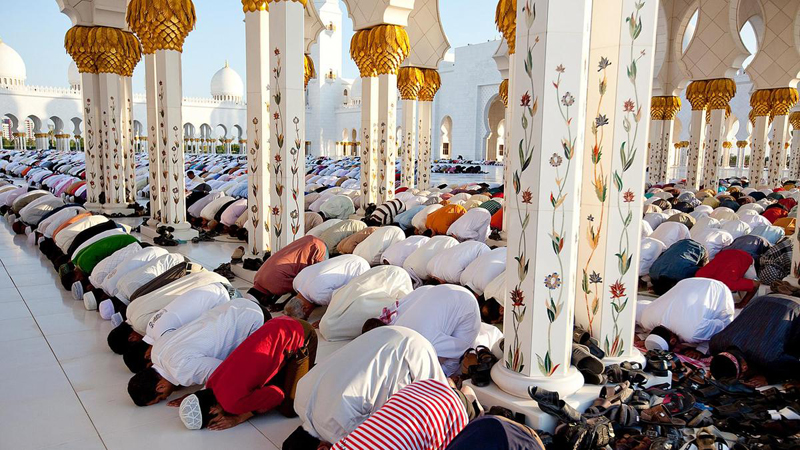 Eid is a festival celebrated by Muslims after fasting throughout the month of Ramadan. This month comes every year and so does Eid but, the meaning of Eid is changing with every passing year which implies that the meaning of happiness is changing for us too. With every passing day, our lives are becoming mechanical and smart because of our use of smart gadgets and so is our celebration of Eid. Our Eids too have become smart.
Eid is a festival celebrated by Muslims after fasting throughout the month of Ramadan. This month comes every year and so does Eid but, the meaning of Eid is changing with every passing year which implies that the meaning of happiness is changing for us too. With every passing day, our lives are becoming mechanical and smart because of our use of smart gadgets and so is our celebration of Eid. Our Eids too have become smart.
Wishing each other Eid these days has become just a formality and has totally lost its true spirit of love and joy. It was only a few years ago that people used to send each other Eid greetings in the shape of Post and Eid cards. The same cards were adorned with some beautiful pieces of poetry. People would spend a lot time selecting cards for their friends and family. They would actually put some effort to go to the market and buy Eid cards for each other. Moreover, the same cards were decorated in the bed rooms and on the walls of drawing rooms. Those cards would serve as a constant source of joy for the ones who received them and were also a symbol of love from the ones who had sent them. But these days this classy tradition is nowhere to be seen. It has been replaced by a mechanical SMS or a social media status. These messages and status too, convey the greetings of Eid but are unable to convey the love, the feelings and the warmth. They do remind us of a particular event but do not let us realize the essence of it.
Similarly, a decade ago Eid meant sawaiyan – the sweet dish. This too was not only a sweet dish. Deep down, this also had a very profound cultural meaning. This meant our mother’s unique and age old recipe which she would make with all her love. This would mean all the family members sitting together happily, greeting each other and spreading their love and affection. But now the place sawaiyan – our mother’s age old recipe is taken up by some ready-made and instant sweet dishes. Their sweetness is felt by the taste buds only and not by the heart.
Eidi, is yet another beautiful part of the meethi Eid which too is now quantified. It was considered a token of love from the elders for the younger ones. Be it Rs 10 or more, it was accepted vey whole heartedly by the young ones. Children would count their Eidi over and over again and would enjoy counting it every single time. They would spend all this money eating various things all day. Contrary to this, today children expect huge amount of Eidi from their elders which would enable them to buy an iPad or a new model of a smart phone. Quantifying this tradition has stripped children of the real contentment and joy of it.
As 1980s and ’90s kids, we have a lot of memories about Eid. We can still recall a number of things and gain pleasure out of just memories of those. But what do our kids have to remember about Eid in particular and their childhood in general is the real question to think upon. What so valuable have we given to them to make their childhood memorable? We have made their childhood equally mechanical and artificial as we have made our lives. It is a great injustice to them. Unconsciously we are stripping our children off from their rich cultural heritage and ages old values. We should be making some conscious efforts for our children to be in touch with our traditions. The same events and the related traditions would make memories unforgettable for them which they would cherish all their lives and would help them remember their childhood.
The writer is a graduate of International Islamic University Islamabad and is currently pursuing MS in English. She can be reached at ahmedmaria001@gmail.com